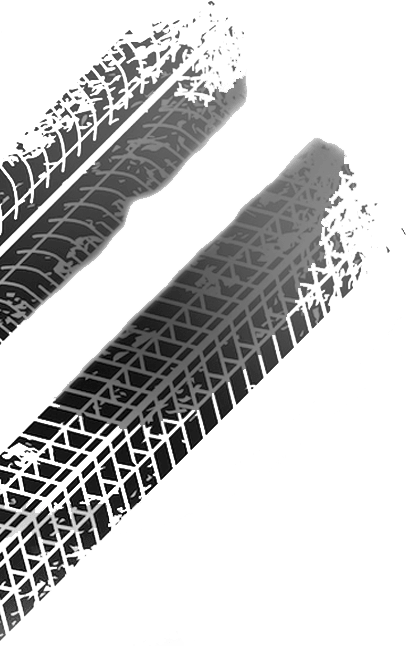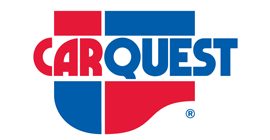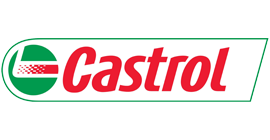
AUTONET TV
Archive for August 2020The Key Won't Turn! (Ignition Problems)Posted August 30, 2020 10:00 AMYou've just arrived at the store shopping and you're ready to head home. You put your key in the ignition and… oh, no! The ignition won't turn! What do you do now? Don't panic. There are some things you can do to get going again. The first thing to do is see if you have a locking steering wheel, an anti-theft feature that was introduced around 1970. Sometimes it sticks. Move the steering wheel side to side while you try to turn the key and you might be able to get it to release. Another thing to check is to see if your vehicle is in gear. Most vehicles will only allow you to start the ignition if it's in park or neutral. If you have an automatic transmission vehicle and it is in park, try jiggling the shift lever and try the key again. Sometimes the safety mechanism doesn't properly make contact or gets a little sloppy. If both of these don't work, it could be your vehicle's battery is dead. Some newer electronic systems require power so the key can turn. Others have alarm systems that detect if doors are open. Other issues that can cause key problems include something jammed in the lock cylinder. Or some of the springs or pins inside may be stuck. Consider that it may be the key itself. Sometimes they get bent or simply wear out from the number of times they've been put in and taken out of the cylinder. No matter what the cause, the first time this happens you should have your repair service facility check it out. That’s because if it happens once, it can happen again. Even if you were able to get going again on your own, your ignition/key has warned you that something's wrong. Have it checked out by a pro so you’re not locked into a bad situation. autoclinic of brandon The Daily Grind (Grinding Noise)Posted August 23, 2020 7:30 AMIf your vehicle makes a grinding sound when you turn the steering wheel, it's speaking to you. No, really, it is. So listen to what it's saying and you could avoid a much more costly repair down the road. A grinding sound coming from the front of your vehicle when you are turning can offer some very informative clues as to what's going on. One cause could be that there's a problem with the mechanical linkage that enables you to turn the wheels. Another is that the hydraulic system that makes turning the steering wheel easier may have its own problems. Think of it. Hydraulic power steering has many components that need to work in tandem. The power steering fluid may be too old and contaminated. Or its level may be low. That may be caused by a leak somewhere in the system. A technician can check things over to find out exactly what's happening. Other causes of grinding while turning can be problems with the suspension in the front. You may have a failing CV (constant velocity) joint. It could be your brakes are partially engaging while you are turning. That metal-on-metal sound is never a sign that things are working just the way they're supposed to. To a technician looking to pinpoint the problem with your vehicle, it's not a daily grind at all. Experience and training will help her or him zero in on what's causing the noise and get you back on the road. Maybe you can enjoy your sound system more after that distracting background noise has disappeared! autoclinic of brandon Emergency! (Vehicle Emergency items)Posted August 16, 2020 10:09 AM"I never expected it could happen to me." Countless drivers have said that after they've had an emergency turn their lives upside down. So before that happens to you, let's thinking about planning ahead for an emergency with a few things you should keep in your vehicle.
Other things like basic tools, a first aid kit, a space blanket and jumper cables are also good ideas. Many service repair facilities offer these items for sale, and you can ask your service advisor for suggestions. While it's fresh in your mind, plan a shopping trip and put together your own emergency kit now. Sure, you can put it off, but you may find yourself stuck in a difficult situation, saying to yourself, "Only if…" autoclinic of brandon Weather Station on Wheels (Vehicle Sensor Maintenance)Posted August 9, 2020 7:07 AMYou probably never thought about it, but your vehicle is like a rolling weather station. It can check the outside temperature, let you know when the roads are slippery and help you deal with rain. And how it does all those things is pretty cool. First, just like any weather station, a vehicle has sensors that measure the driving and weather conditions you find yourself in. Some of those sensors can control computerized systems in your vehicle to react to the weather. It depends on whether you have a 2-wheel, 4-wheel or all-wheel drive vehicle how those sensors will respond. Let's start with temperature. Most vehicles now have a thermometer that measures the temperature outside. It's usually in the front, and likely will tell you on the instrument panel what the outside temperature measures. But a temperature sensor will also tell your vehicle's computers to turn on or off certain systems like the heating or air conditioning. If your ambient temperature sensor isn't working right, some symptoms are a malfunctioning automatic A/C or a temperature display that is way different than the app on your phone says it should be. Your vehicle will also have sensors that measure your speed at each wheel. They work with an onboard computer to measure slippage in any of the wheels so traction control and antilock brakes work correctly in case of slick roads. Your vehicle can measure something called longitudinal and latitudinal acceleration, and it uses a yaw sensor to do it. That helps it determine if you might be in an oversteering or understeering situation. It's important because it works with your vehicle's brakes to apply stopping power to keep you in control. A steering wheel sensor tells the vehicle's computers what the driver is doing with the wheel. It also can work with those wheel sensors to measure how slippery the roads are, whether it be due to a wet (rain) or granular (gravel or sand) surface. By sending different torque or braking to each wheel, it helps the driver maintain control. More and more vehicles now have a rain sensor that can turn on the wipers automatically when they measure precipitation on the windshield. So, you're driving your own weather station, and making sure all this data is coming in properly depends on how each component is working. Regular service and maintenance on these systems is important to make sure they can do their job. Your rolling weather station can't predict the weather, but it can sure help you deal with it, so help it do its job right.
The Flat Fix that Fits (Tire Repairs)Posted August 2, 2020 11:41 AMCan you think of anyone who likes getting a flat tire? Of course not. But when one of your tires winds up with a flat or leak, whether it be from things like hitting a curb, running over a nail or picking up a sharp stone, it's time to have someone who knows what they're doing take care of it. If you're thinking you'd like to avoid having to buy a new tire, you wonder if a patch or plug will suffice. It depends where the puncture is and how big the hole is. Most tire experts will say if the hole in the tire is less than ¼ of an inch or 6 mm, a patch can work. But a patch likely won't work if the compromised part of the tire is on its shoulder or sidewall. Here's why. The shoulder of a tire is the part between the sidewall and tread and it's usually rounded. It's under a lot of pressure, more than even the sidewalls. And because of that curved shape, it's hard to get a patch or plug to hold. The sidewall is the side of the tire. Sidewalls flex a lot when you drive, and the strain can cause a patch or plug to loosen up. A weak spot in a sidewall is much more likely to fail and cause a blowout. So if you have damage in the sidewall or shoulder, that tire is a good candidate for replacement, not repair. If you have a cut or gash in your tire, it's possible the cords that strengthen your tire have also been cut. That weak spot can spell trouble, and this type of damage usually means you should get a new one. Your service advisor can tell you what the appropriate action is to take when you have tire damage. You may be able to get good results with a patch, or you may have to replace one or more tires. Your safety is riding on them. autoclinic of brandon | ||
SearchArchiveDecember 2009 (3)January 2010 (3) February 2010 (4) March 2010 (4) April 2010 (5) May 2010 (2) June 2010 (1) July 2010 (4) August 2010 (4) September 2010 (3) October 2010 (3) November 2010 (4) December 2010 (5) January 2011 (4) February 2011 (4) March 2011 (5) April 2011 (4) May 2011 (4) June 2011 (1) August 2011 (3) September 2011 (3) October 2011 (2) December 2011 (4) February 2012 (2) March 2012 (4) April 2012 (4) May 2012 (1) June 2012 (3) July 2012 (1) August 2012 (1) November 2012 (1) December 2012 (2) March 2013 (1) April 2013 (4) May 2013 (1) September 2013 (1) October 2013 (5) November 2013 (2) January 2014 (2) February 2014 (4) March 2014 (1) July 2014 (4) August 2014 (7) September 2014 (4) October 2014 (5) November 2014 (4) December 2014 (4) January 2015 (5) February 2015 (4) March 2015 (4) April 2015 (4) May 2015 (3) June 2015 (5) July 2015 (1) September 2015 (2) October 2015 (4) November 2015 (5) December 2015 (2) February 2016 (2) March 2016 (3) April 2016 (4) May 2016 (5) June 2016 (4) July 2016 (5) August 2016 (4) September 2016 (4) October 2016 (4) November 2016 (5) December 2016 (4) January 2017 (5) February 2017 (4) March 2017 (4) April 2017 (4) May 2017 (5) June 2017 (4) July 2017 (5) August 2017 (3) September 2017 (3) October 2017 (4) November 2017 (5) December 2017 (3) January 2018 (5) February 2018 (4) March 2018 (4) April 2018 (5) May 2018 (4) June 2018 (3) July 2018 (5) August 2018 (4) September 2018 (5) October 2018 (4) November 2018 (4) December 2018 (5) January 2019 (5) February 2019 (4) March 2019 (5) April 2019 (4) May 2019 (4) June 2019 (5) July 2019 (4) August 2019 (4) September 2019 (5) October 2019 (4) November 2019 (4) December 2019 (5) January 2020 (5) February 2020 (4) March 2020 (5) April 2020 (4) May 2020 (5) June 2020 (4) July 2020 (4) August 2020 (5) September 2020 (4) October 2020 (4) November 2020 (5) December 2020 (4) January 2021 (6) February 2021 (4) March 2021 (4) April 2021 (4) May 2021 (5) June 2021 (4) July 2021 (4) August 2021 (5) September 2021 (4) October 2021 (5) November 2021 (4) December 2021 (4) January 2022 (6) February 2022 (4) March 2022 (4) April 2022 (4) May 2022 (5) June 2022 (4) July 2022 (5) August 2022 (2) September 2022 (4) October 2022 (5) November 2022 (4) December 2022 (4) January 2023 (5) February 2023 (4) March 2023 (4) April 2023 (5) May 2023 (4) June 2023 (4) July 2023 (5) August 2023 (4) September 2023 (3) October 2023 (3) January 2024 (1) February 2024 (4) | CategoriesService Standards (12)Parts (7)Automotive News (8)Maintenance (52)Fuel System (46)Tires and Wheels (40)Transmission (11)Monitoring System (3)Dashboard (3)Steering (14)Battery (20)Drive Train (9)Service Intervals (9)Brakes (22)Cabin Air Filter (8)Fluids (16)Shocks & Struts (9)Windshield Wipers (9)Timing Belt (6)Inspection (10)Headlamps (6)Alignment (16)Check Engine Light (6)Cooling System (19)Safety (6)Air Conditioning (17)Differential Service (3)Diagnostics (5)Exhaust (12)Fuel Economy (10)Engine Air Filter (2)Keys to a long lasting vehicle (4)Diesel Maintenance (1)Suspension (3)Serpentine Belt (6)Older Vehicles (4)Emergency Items (1)Winter Prep (7)Auto Safety (6)Alternator (6)Trip Inspection (4)What Customers Should Know (81)Warranty (1)Tire Rotation and Balancing (3)Customer Detective Work (1)Wheel Bearings (1)Oil Change (7)Fuel Saving Tip: Slow Down (2)Safe Driving (1)Tires (10)Spark Plugs (2)TPMS (3)Water Pump (1)Winter Tires (1)PCV Valve (2)Brake Service (4)Fuel Pump (1)Transfer Case Service (1)Shocks and Struts (1) | |

Get free Coupons
Take advantage of these great offers!



.png)






